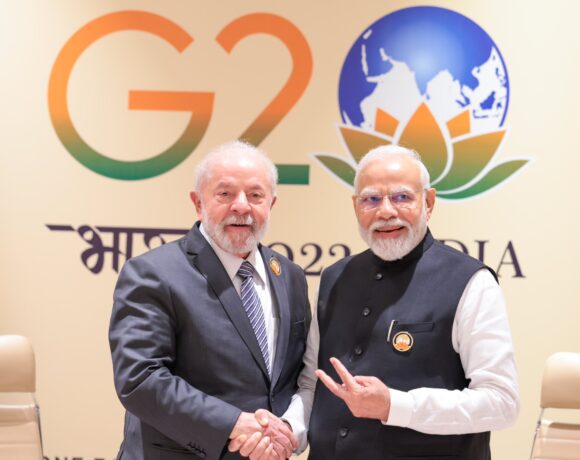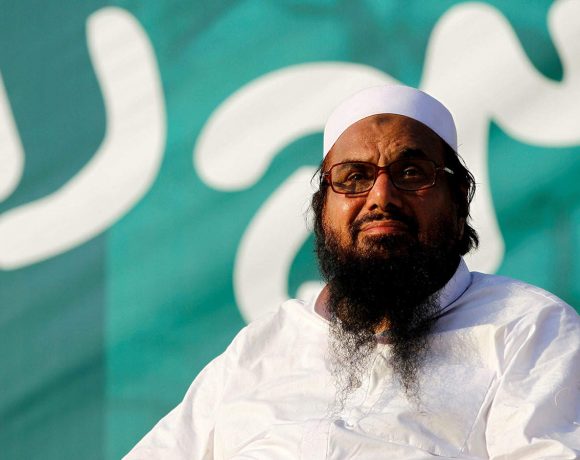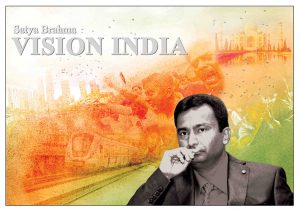

After remaining in political wilderness, former Samajwadi Party general secretary Amar Singh is back in news yet again. According to a new book, Amar Singh might have been instrumental in $ 5 million donation paid to the Clinton Foundation in 2008. The allegation first surfaced in 2008 when a New York Times (NYT) report made similar claims at a time when Congress was negotiating the Indo-US civil nuclear deal.According to NYT, Singh is reported to have given between $1 million to $5 million to the foundation and had met Bill Clinton in September 2008 while lobbying for the deal. A new book titled Clinton Cash has brought back the matter yet again, pointing finger at Singh’s role in the donation. Book claims whether Singh was the actual donor or a conduit for other interests in India for pushing the deal forward in US Congress.Rumour has it that Hillary Clinton in 2008, a Senator at that time, was among the Democrats who backed the legislation in Congress and was believed to be in touch with Singh. The author, Peter Schweizer, said that if the former Samajwadi Party general secretary is the donor then it would mean he had given 20 percent of his declared financial assets at the time to the Clinton Foundation. However, Singh in 2008 denied being part of such generosity saying that someone else might have given the sum on his behalf. Refuting the latest report Singh maintained he never made any donation to the foundation.
“That is not my donation, I have not given that money to the The Clinton Foundation,” Singh told the Economic Times. Meanwhile, Singh admitted that he was close to the former US president Bill Clinton but said that his ‘corporate rivals’ were hell bent on insinuating him on this count.
Did then senator Hillary Clinton change her position on the India-US nuclear deal in 2008 and vote in its favor in return for payments to her family trust and campaign?
She did, according to a new yet-to-be-released book that has raised questions about funding of the family-run Clinton Foundation, accessed by Politico, a news publication.
But the publication also said that a study of the Senator Clinton’s voting record on the deal showed “two key facts in (the book’s) argument on the topic are false”. In other words, there is no truth to these allegations.
A Clinton campaign spokesperson told Politico, “Clinton Cash is attempting to rewrite history to fit a pre-determined partisan narrative. It only takes a quick look at Hillary’s actual voting record and statements to see that this conspiracy theory doesn’t even come close to passing the smell test.”
The highly anticipated book “Clinton Cash: The Untold Story of How and Why Foreign Governments and Businesses Help Make Bill and Hillary Rich”, is due for release next week.
The allegations pertaining to the nuclear deal come in a chapter titled, “Indian Nukes: How to Win a Medal by Changing Hillary’s Mind”, which was obtained by Politico, the publication said.
Hindustan Times has not seen or read that chapter, which, according to Politico, details a series of “donations and overtures” by Indians to the Clintons and mentions a New York hotelier who is a Clinton donor and who was awarded by India, for his help in clinching the nuclear deal.
But the report did not directly link his donations to Clinton changing her mind, which, according to the same report, she actually didn’t even though she may have had reservations about some aspects of it.
“Clinton actually publicly stated her support for the deal in 2006,” said the Politico, adding, “and in fact voted against a “killer amendment” that the book reports she supported.”
The book’s author, Peter Schweizer, said in a TV interview past week,“In 1998 the Indian government conducted nuclear tests, Bill Clinton imposed restrictions on the export of U.S. nuclear technology, because this violated the nonproliferation treaty — Hillary Clinton supported that position,”
He added: “In 2005, the Indian government wanted those restrictions lifted. Hillary Clinton at that time supported a killer amendment to stop that from happening. After 2005, a number of Indian interests, including an Indian politician that admits now that his donation to the Clinton Foundation wasn’t even his money, those donations flowed. In 2008, she reverses course, and supports the export of U.S. nuclear technology.”
The book has mentioned a sizable contribution to the Clinton Foundation from politician Amar Singh, who has since denied it was his money that is listed against his name.
“That is not my donation, I have not given that money to the The Clinton Foundation,” Singh told Economic Times. “If any friend has done that on my behalf I am grateful to them, but it’s not mine.”
Report from US
A politician from India donated some $5 million to the Clinton Foundation — which would have amounted to nearly his entire net worth, a new book about the Clintons claims.
The Clinton Foundation in 2008 reported that it had received a contribution of between $1 million and $5 million from Amar Singh, a member of India’s Parliament and a pal of Bill Clinton.
The size of the donation relative to Singh’s net worth raised questions about whether Singh was the true source of the cash, according to “Clinton Cash” author Peter Schweizer.
The 2008 contribution was made as Congress debated approval of a nuclear agreement between the United States and India, which then-Sen. Hillary Rodham Clinton eventually supported. She met with Singh in Washington in September 2008 to discuss the legislation.
Schweizer speculates on whether Singh was a conduit for other powerful interests in India pushing for approval of the nuke deal. Singh’s donation was treated with suspicion and amusement in India.Singh, in his own financial disclosure statement filed with the Indian government, reported his total net worth was approximately $5 million.“If true, that meant Singh had given between 20 and 100 percent of his entire net worth to the Clinton Foundation!” Schweitzer says.For his part, Singh gave cryptic and conflicting answers about the donation.
He told the Times of India “the payment could have been made by someone else” on his behalf.Singh told government ministers his name was listed by the Clinton Foundation because he had “facilitated the payment and, therefore, it ‘erroneously’ appeared in the records,” according to the book.Singh later beat charges that he bribed three other Indian politicians to support the nuclear deal.
Hillary Clinton changed her position on a 2008 nuclear agreement between the United States and India after Indian business and government interests flooded various Clinton enterprises with cash, a highly anticipated new book alleges in a chapter obtained by POLITICO.
The book — “Clinton Cash: The Untold Story of How and Why Foreign Governments and Businesses Help Make Bill and Hillary Rich” — has become a major point of contention as Clinton kicks off her 2016 bid for the White House. She addressed the controversy surrounding it at a campaign stop in New Hampshire earlier this month, calling it one of many “distractions and attacks,” and her team has aggressively fought to both discredit its conservative author, Peter Schweizer, and to debunk its claims before publication.
Due for release on May 5, while Clinton is scheduled to hold campaign events in Nevada, the book promises a look at allegedly inappropriate financial arrangements between foreign entities and the Clintons, in particular focusing on the family’s $2 billion foundation and the Democratic front-runner’s years as secretary of state. Clinton’s team has responded to a series of reports about the book’s contents – including one in POLITICO about a chapter alleging that Clinton’s diplomatic role directly affected the business of major foundation donor Frank Giustra — by pointing out that Schweizer briefed GOP officials on his research, and that some of his sources have been proven false.
The newly obtained chapter, titled, “Indian Nukes: How to Win a Medal by Changing Hillary’s Mind,” details a series of donations and overtures from Indians who supported the nuclear deal to the Clintons, and points to one case of an Indian-American Clinton donor — who in April 2014 pleaded guilty in an illegal contribution scheme for Clinton’s 2008 run — receiving an award from the Indian government for his work in securing the agreement.
“In 1998 the Indian government conducted nuclear tests, Bill Clinton imposed restrictions on the export of U.S. nuclear technology, because this violated the nonproliferation treaty — Hillary Clinton supported that position,” Schweizer said Tuesday on MSNBC’s Morning Joe, outlining the chapter. “In 2005, the Indian government wanted those restrictions lifted. Hillary Clinton at that time supported a killer amendment to stop that from happening. After 2005, a number of Indian interests, including an Indian politician that admits now that his donation to the Clinton Foundation wasn’t even his money, those donations flowed. In 2008, she reverses course, and supports the export of U.S. nuclear technology.”
While Clinton’s stance toward India evolved over the years, a review of then-Sen. Clinton’s statements and votes while the Indian nuclear deal was under debate shows that two key facts in Schweizer’s argument on the topic are false, as Clinton actually publicly stated her support for the deal in 2006 and in fact voted against a “killer amendment” that the book reports she supported.
Asked about the allegations by POLITICO, Clinton campaign spokesman Josh Schwerin said, “Clinton Cash is attempting to rewrite history to fit a pre-determined partisan narrative. It only takes a quick look at Hillary’s actual voting record and statements to see that this conspiracy theory doesn’t even come close to passing the smell test.”
Schweizer writes in the chapter that in 2006, “Hillary was still a reluctant and questionable supporter of the bill.” But in June of that year Clinton, a founding member of the Senate India caucus, issued a press release announcing her intention to vote for the legislation, and praising Sens. Richard Lugar and Joe Biden, who she said improved upon the Bush administration’s initial proposal.
Schweizer also alleges that in 2006 Clinton supported a “‘killer amendment’ that would have effectively gutted the bill by capping India’s fissile production.” However, while Clinton did support a measure that would have forced India to comply with non-proliferation and disarmament agreements, and another that insisted the deal “does nothing to directly or indirectly assist, encourage, or induce India to manufacture or otherwise acquire nuclear weapons or other nuclear explosive devices,” she voted against the so-called “killer amendment,” which was introduced by Democratic Sen. Jeff Bingaman of New Mexico.
Implying that a group of influential Indians directed money and attention to the Clintons in order to get them to support the nuclear deal, the book details the activities of Sant Chatwal, the New York hotelier who in December was sentenced to three years probation for his campaign finance violations.
Chatwal allegedly helped arrange one of Bill Clinton’s most lucrative public speeches — a $450,000 affair in London — and once said, “Even my close friend Hillary Clinton was not in favor of the deal [in 2006] … But when I put the whole package together, she also came on board. … In politics nothing comes free. You have to write cheques in the American political system.”
Schweizer writes that Chatwal arranged a dinner for Clinton in 2007 featuring Indian billionaires who soon thereafter donated to the Clinton Foundation, and that Chatwal played a large role in steering other money toward the Clintons. The Indian government gave him one of the country’s highest civilian honors in 2010, Schweizer writes, largely thanks to his role in getting Clinton to support the deal. Chatwal’s lawyer did not respond to POLITICO’s request for comment.
The chapter also examines the case of Indian politician Amar Singh, who hosted what an Indian newspaper called “a mega bash for former U.S. President Bill Clinton” in Lucknow in September 2005 and had a two-hour dinner with Hillary Clinton before an important vote on the bill in September 2008, Schweizer writes. Singh drew attention when the Clinton Foundation revealed in 2008 that he had donated between $1 million and $5 million — between 20 and 100 percent of his entire net worth — and then he insisted the money was not his.
Asked about the money as recently as this week, Singh told India’s Economic Times, “That is not my donation, I have not given that money to the Clinton Foundation.”
Some of Schweizer’s reporting has recently been called into question as chapters of the book have fallen into reporters’ hands. On Tuesday, for example, BuzzFeed reported that Bill Clinton was not, in fact, paid for a series of speeches that are identified by Schweizer as coming in return for a favor in Haiti. And a talking points memo circulated by the Clinton camp to its allies last week noted that one of Schweizer’s sources in the book is a TD Bank news release that was revealed as fake two years ago.
But Clinton continues to face scrutiny over her involvement with her family’s foundation, which has come under fire this year for accepting donations from foreign governments. The organization’s acting CEO admitted over the weekend that it had “made mistakes, as many organizations of our size do,” in disclosing its donors, but that it would likely review and refile some of its tax forms. The admission came less than two weeks after the foundation said it would limit — but not eliminate — donations from foreign governments while Clinton is pursuing the presidency.
Meanwhile Bill and Chelsea Clinton this week embarked on a foundation trip to Africa, where they are expected to remain, with an entourage of donors, until next Thursday — two days after the book is released.
Bill Clinton first met Singh in 2005 through Sant Chatal, an Indian-American businessman who generated millions of dollars for the foundation, in speaking fees for the ex-president, and for Hillary’s 2008 presidential campaign.
Clinton and Singh hit it off so well off during their first meeting in India that the former president invited Singh to be his guest at the Clinton Global Intitiative held in New York days later, granting him a seat at the head table.
Hillary Clinton’s financial links to India and the Indian-American community were so established during the 2008 campaign that Barack Obama had to apologize after a campaign aide made the “dumb mistake” of mocking her as “(D-Punjab)” in a campaign memo.
Over just five days last week, Fox News devoted more than 10 hours of total coverage to promoting Peter Schweizer’s new anti-Clinton book, Clinton Cash. The coverage is worth more than $107 million in publicity value, according to a Media Matters study of the network’s coverage between April 20 and April 24.
Schweizer, a conservative activist with a long history of shoddy reporting and research, is set to releaseClinton Cash on May 5. The book is being published by HarperCollins, which is owned by Rupert Murdoch’s News Corp. Fox News is part of 21st Century Fox, which is also owned by Murdoch. Politico reported last week that Fox News, along with the New York Times and The Washington Post, had struck “exclusive agreements with a conservative author for early access to his opposition research on Hillary Clinton.”
Fox News has devoted copious time and energy to promoting the book, which it claims could lead “people” to “worry that another Clinton administration could mean influence-peddling on a scale never before imagined.”
America’s Newsroom spent the most time discussing the book with 1 hour and 41 minutes of total coverage, which amounted to nearly $15 million in free airtime for Clinton Cash. The Kelly File was second in time — just more than 1 hour of total coverage — but first in value, topping the list with more than $15.5 million in free airtime.
The time total includes The Tangled Clinton Web, the special program Fox News devoted to claims from the book, which amounted to more than 40 minutes of coverage with a value of $7.4 million.

TVEyes Media Monitoring Suite, a subscription-only database of television broadcasts, estimates the value of 30-second slots on any given program, called the “national publicity value.” Media Matters used this value to calculate the total amount of dollar value for each time the network discussed the Clinton Cash book in teases for upcoming segments on the book, in passing mentions of the book within segments on other topics, and in segments where the book was the stated topic of discussion or where there was signification discussion — determined as two speakers discussing the book or its allegations to one another, e.g., the host asking a guest a question — of the book. Media Matters monitored live video feeds and reviewed an internal video archive for any mentions of the book.

According to ThinkProgress, “Schweizer makes clear that he does not intend to present a smoking gun,” and ABC News has further reported that it has already “uncovered errors” within the book. Numerous media outlets have reported that Schweizer has presented “little evidence” to support the speculative claims in Clinton Cash. On the April 26 edition of This Week, ABC’s George Stephanopoulos confronted the author about allegations in the book, stating that “we’ve done investigative work here at ABC News [and] found no proof of any kind of direct action.” NBC News criticized a New York Times piece based in part on Clinton Cash, stating that it “doesn’t hold up that well.”
Hillary Rodham Clinton isn’t just running against Republicans. She’s also running against parts of her husband’s legacy.
On issues large and small, the Democratic presidential contender is increasingly distancing herself from — or even opposing — key policies pushed by Bill Clinton while he was in the White House, from her recent skepticism on free-trade pacts to her full embrace of gay rights.
The starkest example yet came Wednesday, when Hillary Clinton delivered an impassioned address condemning the “era of incarceration” ushered in during the 1990s in the wake of her husband’s 1994 crime bill — though she never mentioned him or the legislation by name.
“We have allowed our criminal justice system to get out of balance,” Clinton told an audience at Columbia University in New York, making references to unrest in Baltimore and elsewhere and elsewhere over actions by police. “And these recent tragedies should galvanize us to come together as a nation to find our balance again.”
The contrasts between some of Clinton’s positions and those of her husband from 20 years ago show the extent to which Democrats, and the country as a whole, have shifted to the left on a number of key issues. Indeed, Bill Clinton now says that some of his incarceration policies went too far and that he regrets backing a federal law that defined marriage as being between a man and a woman.
Hillary Clinton: ‘Violence has to stop’ in Baltimore(2:42)
Speaking at Columbia University on April 29, 2015, Democratic presidential candidate Hillary Clinton commented on the unrest in Baltimore and a need for reform in the U.S. justice system. (Columbia University)
But the differences also illustrate the dicey challenges that Hillary Clinton will face in attempting to both embrace and keep separate from the 42nd president, who remains personally popular but whose 1990s positions on some issues, particularly in the social arena, now feel out of date.
Bill Clinton won two elections running as a centrist Democrat waging open war with his party’s left flank. Hillary Clinton now hopes to win the White House by running to the left, capturing a wave from the young, liberal-
leaning coalition that twice propelled President Obama to victory.
The candidate has also staked out positions to the left of her husband’s administration on core women’s issues, such as equal pay and paid maternity leave, as she seeks to become the nation’s first female president.
“Twenty years is a long time,” said Robert Reich, a leading liberal who served as labor secretary in the Clinton administration. “I don’t think she feels in any way bound by policies of a different administration two decades ago, even though she is married to the person who initiated those policies. I think we’ll see Hillary Clinton parting ways with the Bill Clinton administration on a number of matters.”
Clinton’s nascent campaign — which formally began a bit more than two weeks ago — sought to play down differences between the current candidate and the former president.
Spokesman Jesse Ferguson wrote in a tweet that Hillary Clinton’s positions on Internet policy are also likely to be different — not because her husband was wrong, but because “times change.”
The Clintons, right, wave to the media as their daughter, Chelsea, and son-in law, Marc Mezvinsky, pose for photographers with their newborn baby, Charlotte. (William Regan/Associated Press)
In a statement to The Washington Post, the campaign said, “This campaign will be about Hillary Clinton’s vision for the next
20 years, not re-litigating policies from 20 years ago.”
Republican National Committee spokeswoman Allison Moore said Clinton was being opportunistic: “As Hillary Clinton continues to flip-flop on the issues, she’s only further proving that she’ll say anything to benefit herself politically, which is why the majority of American people find her to be untrustworthy.”
Some in the Republican camp have their own problems reckoning with family legacies, however. Former Florida governor Jeb Bush is struggling to calibrate the proper distance from his father and brother as he mulls a 2016 presidential campaign, while Kentucky Sen. Rand Paul, already in the race, is keeping his eccentric father, former congressman Ron Paul, at arm’s length.
The 1994 crime bill ushered into law by Bill Clinton came in the wake of the crack cocaine epidemic, building on anti-drug policies implemented during the Ronald Reagan years. The law enacted a broad range of tough-on-crime policies, including three-strikes-and-you’re-out requirements that helped fuel a surge in incarceration.
Many politicians in both parties have now concluded that at least some of those policies were a mistake.In her New York speech, Hillary Clinton said measures that emphasized arrests and convictions for relatively minor offenses have failed the country, leading to overcrowded prisons and too many black men “missing” fromcommunities.
In her most specific policy proposals so far, Clinton also endorsed body cameras for police nationwide and said it is time for an overhaul of policing and prison strategies.
“Not only as a mother and grandmother, but as a citizen, as a human being, my heart breaks for these young men and their families,” she said. “We have to come to terms with some hard truths about race and justice in America.”
Bill Clinton has also had a change of heart. In a foreword to a new book of essays from the Brennan Center for Justice, he wrote that “we have overshot the mark.”
“We acted to address a genuine national crisis,” he continued. “But much has changed since then. It’s time to take a clear-eyed look at what worked, what didn’t, and what produced unintended, long-lasting consequences.”
Gay rights is another major area where Hillary Clinton has set out very different positions than her husband adopted while in office, adapting to a profound change in public mood. Both Clintons now repudiate the restrictions on gay military service and marriage that Bill Clinton signed into law.
Hillary Clinton — who said as first lady that she considered marriage to be between a man and woman — is making support for same-sex marriage a centerpiece of her campaign and is on record encouraging a constitutional right to same-sex marriage nationwide.
On trade, candidate Clinton has declined to endorse a pending Asia-Pacific trade deal, called the Trans-Pacific Partnership, that is opposed by labor groups and which she supported as secretary of state. Critics of the proposed deal claim it would be a repeat of the North American Free Trade Agreement, which they blame for a loss of jobs and economic security. Bill Clinton fought his own party to ratify the deal with Canada and Mexico in 1994.“NAFTA means jobs. American jobs, and good-paying American jobs. If I didn’t believe that, I wouldn’t support this agreement,” Bill Clinton said then.
Hillary Clinton plans to unveil a detailed policy agenda on a variety of economic and other issues this summer, and progressive leaders said they are paying close attention to see where else she may deviate from her husband’s legacy.
So far, Clinton has made only vague statements about the most important domestic issues for Democrats, including the push to raise the minimum wage to $15 an hour. She also has not said definitely whether she supports expanding Social Security benefits, a top agenda item for Sen. Elizabeth Warren (D-Mass.), a favorite of the party’s liberal base.
“The economy is where there are the most question marks,” said Andrew L. Stern, a former president of the Service Employees International Union.
Another area of possible departure is on policies regulating major financial institutions, which in the wake of the financial crisis and the Occupy Wall Street movement have become an important cause of many Democrats.
The Glass-Steagall regulatory law, for example, was repealed during the Clinton administration, and many progressives would like to see it restored.
“It’s possible that she will part with the Clinton administration on its policies toward Wall Street,” Reich said.



















